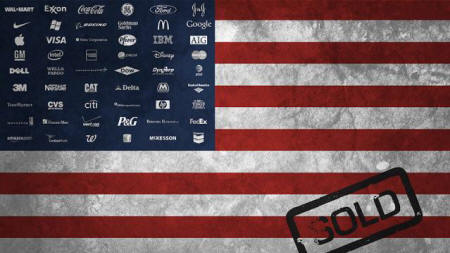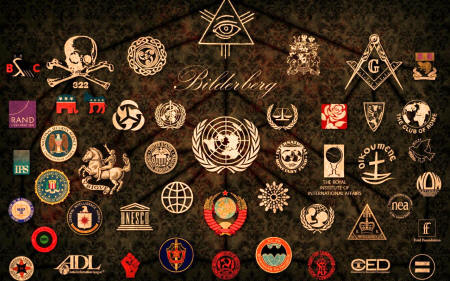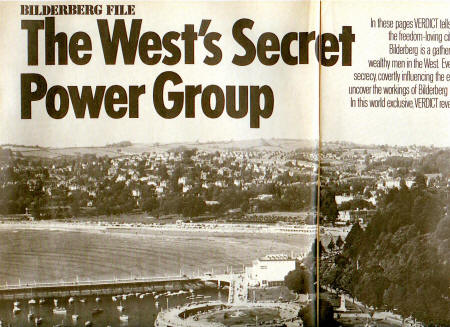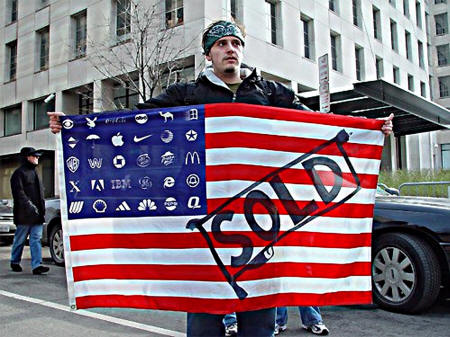|
Identifying The Institutions of Control June 19, 2013
In an article for the journal International Sociology, William K. Carroll and Jean Philippe Sapinski examined the relationship between the corporate elite and the emergence of a transnational policy-planning network,¯ beginning with its formation in the decades following World War II and speeding up in the 1970s with the creation of global policy groups¯ and think tanks such as the World Economic Forum, in 1971, and the Trilateral Commission, in 1973, among many others.
The function of such institutions was to help mobilize and integrate the corporate elite beyond national borders, constructing a politically organized minority.¯
These policy-planning organizations came to exist as venues for discussion, strategic planning, discourse production and consensus formation on specific issues,¯ as well as places where responses to crises of legitimacy are crafted,¯ such as managing economic, political, or environmental crises where elite interests might be threatened. These groups also often acted as advocates for specific projects of integration, often on a regional basis.¯
Perhaps most importantly, the organizations provide bridges connecting business elites to political actors (heads of states, politicians, high-ranking public servants) and elites and organic intellectuals in other fields (international organizations, military, media, academia).¯
One important industry association, according to researchers Carroll and Carson in the journal Global Networks (Vol. 3, No. 1, 2003), is the International Chamber of Commerce. Launched by investment bankers in 1919, immediately following WWI, the Paris-based Chamber groups roughly 7,000 member corporations together across 130 countries, adhering to largely conservative, free market¯ ideology.
The primary function¯ of the ICC, write Carroll and Carson, is to institutionalize an international business perspective by providing a forum where capitalists and related professionals... can assemble and forge a common international policy framework.¯
Another policy group with outsized global influence is the Bilderberg group, founded between 1952 and 1954, which provided a context for more comprehensive international capitalist coordination and planning.¯
Bringing together roughly 130 elites from Western Europe and North America at annual closed meetings, Bilderberg conferences have furnished a confidential platform for corporate, political, intellectual, military and even trade-union elites from the North Atlantic heartland to reach mutual understanding.¯
As Valerie Aubourg examined in an article for the journal Intelligence and National Security (Vol. 18, No. 2, 2003), the Bilderberg meetings were organized largely at the initiative of a handful of European elites, with heavy financial backing from select American institutions including the Rockefeller Foundation, the Ford Foundation and the CIA.
The meetings incorporate leadership from the most prominent national think tanks, such as the Council on Foreign Relations, Brookings Institution, Carnegie Endowment and others from across the North Atlantic 'community.'
Hugh Wilford, writing in the journal Diplomacy & Statecraft (Vol. 14, No. 3, 2003), identified major philanthropic foundations such as the Rockefeller, Ford, and Carnegie foundations as not only major sources of funding but also providers for much of the leadership of the Bilderberg meetings, which saw the participation of major industrial and financial firms in line with those foundations (David Rockefeller of Chase Manhattan is a good example).
Bilderberg was a major force in helping to create the political, economic and strategic consensus behind constructing a common European market.
With the support of these major foundations and their leadership, the Bilderberg meetings became a powerful global tool of the elites, not only in creating the European Union but in designing the process of globalization itself.
Will Hutton, a former Bilderberg member, once referred to the group as the high priests of globalization,¯ and a former Bilderberg steering committee member, Denis Healey,once noted: To say we were striving for a one-world government is exaggerated, but not wholly unfair...we felt that a single community throughout the world would be a good thing.¯
The large industrial foundations have played a truly profound " and largely overlooked " role in the shaping of modern society.
The 'Robber Baron' industrial fortunes of the late 19th century " those of Morgan, Rockefeller, Carnegie, Harriman, Vanderbilt, etc. " sought to shape a new order in which they would maintain a dominant influence throughout society.
They founded major American universities (often named after themselves) such as Vanderbilt, or the University of Chicago which was founded by John D. Rockefeller.
It was through their institutions that they sought to produce new elites to manage a new society, atop of which they sat.
These universities became the harbingers of modern social sciences, seeking to "reform" society to fit the needs of those who dominated it; to engage in social engineering with the purpose of social control. It was in this context that the Carnegie Corporation, the Rockefeller Foundation, and later the Ford Foundation and others were founded: as engines of social engineering.
One of their principal aims was to shape the development of the social sciences " and their exportation around the world to other industrial and imperial powers like Great Britain, and beyond.
The social sciences were to facilitate the scientific management¯ of society, and the foundations were the patrons of "social control."
The Rockefeller, Carnegie and Ford foundations were instrumental in providing funding, organization and personnel for the development of major American and international think tanks such as the Council on Foreign Relations, which became essential to the emergence of a dominant and entrenched U.S. business class linking academia, political, strategic, corporate and financial elites.
The Rockefeller and Ford foundations in particular constructed the field of modern political science and "Area Studies" with a view to educating a class of people who would be prepared to help manage a global empire.
They were also prominent in developing the educational system for black Americans designed to keep them relegated to labor and vocational¯ training.
They helped found many prominent universities in Africa, Asia and Latin America to train indigenous elites with a "Western" education in the social sciences, to ensure continuity between a domestic and international elite, between core and periphery, empire and protectorate.
Another major policy planning group is the Trilateral Commission, created out of the Bilderberg meetings as a separate transnational think tank and founded by Chase Manhattan CEO (and Chairman of the Council on Foreign Relations) David Rockefeller along with academic-turned-policymaker Zbigniew Brzezinski in 1973. The Trilateral Commission linked the elites from Western Europe, North America and Japan (hence trilateral¯), and it now also includes members from China, India and a range of other Pacific-East Asian countries.
Consisting of a membership of roughly 350 individuals from finance, corporations, media, think tanks, foundations, academia and political circles, the Trilateral Commission (TC) has been immensely influential as a forum facilitating the development and integration of a "transnational elite."
The aim of the TC was to foster closer cooperation among these core industrialized areas of the world with shared leadership responsibilities in the wider international system.¯
The most famous report issued by the Trilateral Commission in the mid-1970s suggested that due to the popular activism of the 1960s, there was a crisis of democracy¯ that it defined as an excess of democracy,¯ which needed to be reduced in order for democracy to function effectively.¯
According to the Trilateral Commission, what was needed was increased apathy and noninvolvement on the part of some individuals and groups¯ to counter the crisis¯ being caused by a highly educated, mobilized, and participant society.¯
Moving elsewhere, the World Economic Forum, founded in 1971, convenes annually in Davos, Switzerland and was originally designed to secure the patronage of the Commission of European Communities, as well as the encouragement of Europe's industry associations¯ and to discuss European strategy in an international marketplace.¯
The WEF has since expanded its membership and mandate, as Carroll and Carson noted, organized around a highly elite core of transnational capitalists (the 'Foundation Membership') " which it currently limits to '1000 of the foremost global enterprises'.¯ The meetings include prominent individuals from the scientific community, academics, the media, NGOs and many other policy groups.
Another major policy planning group emerged in the mid-1990s with an increased focus on environmental issues, called the World Business Council for Sustainable Development (WBCSD), which instantly became the pre-eminent business voice on the environment¯ with a 1997 membership of 123 top corporate executives, tasked with bringing the voice¯ of big business to the process of international efforts to address environmental concerns (and thus, to secure their own interests).
Among other prominent think tanks and policy-planning boards helping to facilitate and integrate a transnational network of elites are many nation-based organizations, particularly in the United States, such as with the Council on Foreign Relations, the Brookings Institution and the Center for Strategic and International Studies (CSIS), among many others.
The advisory boards to these organizations provide an important forum through which transnational elites may help to influence the policies of many separate nations, and most importantly, the world's most powerful nation: the United States.
The Council on Foreign Relations, founded in 1921, refers to itself as an independent, nonpartisan membership organization, think tank, and publisher,¯ with roughly 4,700 members.
It is largely based in New York with affiliate offices in Washington D.C. and elsewhere. The CFR is, and has been, at the heart of the American foreign policy establishment, bringing together elites from academia, government, the media, intelligence, military, financial and corporate institutions.
The CFR worked in close cooperation with the U.S. government during World War II to design the post-War world over which America would reign supreme. The Council was active in establishing the Grand Areas¯ of the American Empire, and in maintaining extensive influence over the foreign policy of the United States.
As Carroll and Carson noted, there is a prominent relationship between those individuals who sit on multiple corporate boards and those who sit on the boards of prominent national and transnational policy-planning groups, suggesting a highly centralized corporate-policy network.¯
Studying 622 corporate directors and 302 organizations (five of which were the major policy-planning groups: ICC, Bilderberg, Trilateral Commission, World Economic Forum and World Business Council for Sustainable Development), Carroll and Carson assessed this network of transnational elites with data leading up to 1996, and concluded:
Out of the sample of 622 individuals, they found roughly 105 individuals (94 transnational corporate linkers¯ and 11 others whose corporate affiliations are not transnational but who sit on multiple global policy boards¯) making up the most immediate structural contributions to transnational class formation.¯
At the core¯ of this network were 17 corporate directors, primarily European and North American, largely linked by the transnational policy groups, with the Trilateral Commission as the most centrally positioned.¯ This network, they noted, is highly centralized in terms of the individuals and organizations that participate in it.¯
In undertaking a follow-up study of data between 1996 and 2006, published in the journal International Sociology (Vol. 25, No. 4, 2010), Carroll and Sapinski expanded the number of policy-planning groups from five to 11, including the original five (ICC, Bilderberg, TC, WEF, and WBCSD), but adding to them,
The results of their research found that among the corporate directors, policy-board membership has shifted towards the transnationalists, who come to comprise a larger segment of the global corporate elite,¯ and that there was a growing group of elites made up of individuals with one or more transnational policy-board affiliations.¯
As Carroll and Sapinski concluded:
Organizations like the European Round Table of Industrialists (ERT) are not think tanks, but rather, industry organizations (exclusively representing the interests and individuals of major corporations), wielding significant influence over political and social elites.
As Bastiaan van Apeldoorn wrote in the journal New Political Economy (Vol. 5, No. 2, 2000), the ERT developed into an elite platform for an emergent European transnational capitalist class from which it can formulate a common strategy and "on the basis of that strategy" seek to shape European socioeconomic governance through its privileged access to the European institutions.¯
In 1983, the ERT was formed as an organization of 17 major European industrialists (which has since expanded to several dozen members), with the proclaimed objective being to revitalize European industry and make it competitive again, and to speed up the process of unification of the European common market.¯
Wisse Dekker, former Chairman of the ERT, once stated:
Other notable industry associations include the Canadian Council of Chief Executives (CCCE), formerly called the Business Council on National Issues (BCNI), a group comprised of Canada's top 150 CEOs who were a major force for the promotion and implementation of the North American Free Trade Agreement (NAFTA). The CCCE remains one of the most influential interest groups¯ in Canada.
In the United States there are prominent industry associations like the Business Council, the Business Roundtable, and the Financial Services Forum. The Business Council describes itself as a voluntary association of business leaders whose members meet several times a year for the free exchange of ideas both among themselves and with thought leaders from many sectors.¯
Likewise, the Business Roundtable describes itself as an association of chief executive officers of leading U.S. companies with more than $7.3 trillion in annual revenues,¯ which believes that businesses should play an active and effective role in the formation of public policy.¯
Finally, the Financial Services Forum proclaims itself to be a non-partisan financial and economic policy organization¯ which aims to pursue policies that encourage savings and investment, promote an open and competitive global marketplace, and ensure the opportunity of people everywhere to participate fully and productively in the 21st-century global economy.¯
These are among some of the many institutions which will be researched and examined in greater detail throughout the Global Power Project.
In the next installment, I will be examining not only the societal and economic results of these dominant institutions of power, but the specific individuals "and in some cases family dynasties" that wield significant influence nationally and globally.
|



